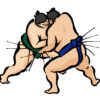What is the meaning of “Koishii” in Japanese? When can I use it? 恋しい

Haha no ryouri ga koishii(母の料理が恋しい).
Totemo koishii(とても恋しい).
Anata ga koishii desu(あなたが恋しいです).
Oden no koishii kisetsu(おでんの恋しい季節)
When reading Japanese novels, watching movies and TV dramas, we often come across the expression “koishii(こいしい、恋しい)" as in the example sentences above.
Or … did anyone say the phrase to you?
If so, you should be pleased (depending on who said it, of course).
So what does “koishii" mean?
What is the meaning of “Koishii" in Japanese?
“Koishii” means emotions that are strongly attracted to people, places, things, etc. that are far away.
You want to talk to or meet someone, and there is a distance between you and that person. Or it’s a situation where you’re lovingly remembering something you did in the past.
The English equivalent of this word is “missed", “longed for", “yearned for".
Therefore, the meanings of the above example sentences are as follows.
This word is often used not only for close people such as family members, but also for the opposite sex.
Haha no ryouri ga koishii
(はは の りょうり が こいしい:母の料理が恋しい)
I miss my mother’s cooking.
Totemo koishii.
(とても こいしい:とても恋しい)
I miss someone or something very much.
Anata ga koishii desu.
(あなた が こいしい です:あなたが恋しいです)
I miss you.
(Note: This is used for the opposite sex you love.)
Oden no koishii kisetsu
(おでん の こいしい きせつ:おでんの恋しい季節)
It’s the season when I want to eat oden. (Because it’s cold)
Other example sentences of “koishii"
The following are example sentences including variants of “koishii":
Aa-, samui na-. Kotatsu ga koishii.
ああ寒(さむ)いなぁ。こたつが恋しい。
Oh, it’s cold. I miss the kotatsu.
Dare ni demo hito-koishii to kanjiru toki ga aru.
誰(だれ)にでも人(ひと)恋しいと感(かん)じるときがある。
There are times when we miss others.
Ie wo dete hajimete kazoku ga koishii to omotta.
家(いえ)を出(で)て初(はじ)めて家族(かぞく)が恋しいと思(おも)った。
It wasn’t until I left home that I missed my family.
Kinou atta bakari nano ni, kare no koto ga mou koishii.
昨日(きのう)会(あ)ったばかりなのに、彼(かれ)のことがもう恋しい。
I just met him yesterday, but I miss him already.
Sokoku no kazoku ga koishikute naite shimau.
祖国(そこく)の家族(かぞく)が恋しくて泣(な)いてしまう。
I miss my family in my country and cry.
Kare ga koishikute zutto kangaete iru.
彼(かれ)が恋しくてずっと考(かんが)えている。
I miss him and have been thinking about him.
Nihonshoku ga koishikute tamaranai.
日本食(にほんしょく)が恋しくてたまらない。
I miss Japanese food so much.
“Koishikute … nakidashita … hibi nado mou … wasuretano …"
「恋しくて・・・泣(な)き出(だ)した・・・日々(ひび)などもう・・・忘(わす)れたの」
I have forgot the days when I had missed you and started crying.
This is the first lyric part of the song “Koishikute(恋しくて)" by the acoustic band “Begin(ビギン)" from Okinawa.
(https://www.youtube.com/watch?v=Uy4FW0RTIBo)
Inu ga sensou ni itta kainushi wo koishigatte naite iru.
犬(いぬ)が戦争(せんそう)に行(い)った飼(か)い主(ぬし)を恋しがって鳴(な)いている。
The dog is barking in love with the owner who went to war.
Kare wa koishisa amari ni kanojo ni denwa wo shite simatta.
彼(かれ)は恋しさあまりに彼女(かのじょ)に電話(でんわ)をしてしまった。
He called her too much for her love.
Sonna ni koishikereba kare ni aini ittara?
そんなに恋しければ彼(かれ)に会(あ)いに行(い)ったら?
If you miss me so much, why don’t you go see him?
Kare towa mou owatta no. Zenzen koishiku nai.
彼とはもう終(お)わったの。全然(ぜんぜん)恋しくない。
I broke up with him. I don’t miss him at all.
Rikon shita danna nante koishiitomo omowanai.
離婚(りこん)した旦那(だんな)なんて恋しいとも思(おも)わない。
I don’t think I miss my divorced husband at all.
Words with similar meanings to “koishii"
There are words that have a similar meaning to “koishii".
“Nnatsukashii(なつかしい:懐かしい)
“Natsukashii" is used especially for things in the past, people who you can’t meet now. In other words, it is a word that is used some time after the present, not about what happened yesterday or the day before yesterday. It includes not only good things but also painful memories.
Gakusei jidai wo natsukashiku omou.
(学生時代(がくせいじだい)を懐(なつか)かしく思(おも)う。)
I miss my school days.
Naki haha wo natsukashiku omoidasu.
(亡(な)き母(はは)を懐(なつか)かしく思(おも)い出(だ)す。)
I miss my late mother.
Jikka ni kaettara mukashi kiteita seifuku wo mitsukete natsukashii kimochi ni natta.
(実家(じっか)に帰(かえ)ったら昔(むかし)着(き)ていた制服(せいふく)を見(み)つけて懐(なつか)かしい気持(きも)ちになった。)
When I returned to my parents’ house, I found the uniform that I used to wear and felt nostalgic.
Suujuunenburi ni kyuuyuutachi to atte mukashi wo natsukashinnda.
数十年(すうじゅうねん)ぶりに旧友(きゅうゆう)たちと会(あ)って昔(むかし)を懐(なつ)かしんだ。
I met my old friends for the first time in decades and we chatted about the old days.
Note: However, even if it happened yesterday or a few days ago, the speaker may have experienced many things in the meantime, and he/she may feel that what he/she talks about happened a long time ago. In such cases, “natsukashii" may be used.
Senshuu atta bakari no hito nanoni nandaka natsukashii.
先週(せんしゅう)会(あ)ったばかりの人(ひと)なのになんだか懐(なつか)かしい。
I feel nostalgic for the person I just met last week.
Kore sengetsu no nyuusu nanoni natsukashiku kanjiru.
これ先月(せんげつ)のニュースなのに懐(なつか)かしく感(かん)じる。
I feel nostalgic for this last month’s news.
“Itoshii(いとしい:愛しい)"
The English meaning of this word is “lovely", “endearing", “adorable", “beloved."
Itoshii anata e.
愛(いと)しいあなたへ
To my beloved
Watashi mo anata ga itoshii desu.
私(わたし)もあなたが愛(いと)しいです。
I love you too.
It is a little old-fashioned expression.
Itoshii wagako ni kono tochi wo nokoshitai.
愛(いと)しい我(わ)が子(こ)にこの土地(とち)を残(とち)したい。
I want to leave this land for my beloved child.
Aka-chan no negao wa totemo itoshii mono da.
赤(あか)ちゃんの寝顔(ねがお)はとても愛(いと)しいものだ。
The baby’s sleeping face is very adorable.
Setsunai(せつない:切ない)
“Koishii" is mainly about positive emotions, while “setsunai" includes sad and lonely feelings.
The kanji “切" used in “setsunai" means “cut." The etymology of this word may be a heartbreaking feeling.
Similar meanings of this word in English are “painful" and “sore".
The feeling of “koishii" for the opposite sex may also include the feeling of “setsunai". Therefore, it is sometimes understood to have a similar meaning. Often used as a negative expression, this word used to include feelings of cherishing.
Kare ga kaigai ni hikkoshite shimatte totemo setsunai.
彼(かれ)が海外(かいがい)に引(ひ)っ越(こ)してしまってとても切(せつ)ない。
It’s very sad that he has moved abroad.
Aiken ga nakunatte shimatte totemo setsunai.
愛犬(あいけん)が亡(な)くなってしまってとても切(せつ)ない。
I’m very sad that my dog died.
Koi towa setsunai mono da.
恋(こい)とは切(せつ)ないものだ。
Love hurts.
Romeo to Juliet wa totemo setsunai rabu stoorii da.
ロミオとジュリエットはとても切(せつ)ないラブストーリーだ。
Romeo and Juliet are a very sad love story.
Kare no kimochi wo omou to totemo setsunaku naru.
彼(かれ)の気持(きも)ちを思(おも)うととても切(せつ)なくなる。
I feel very sad when I think of his feelings.
Kanojo wa zenzen furimuite kurenainda yo. Setsunai yo.
彼女(かのじょ)は全然(ぜんぜん)振(ふ)り向(む)いてくれないんだ。切(せつ)ないよ。
She doesn’t turn her head to me at all. I’m sad.
















